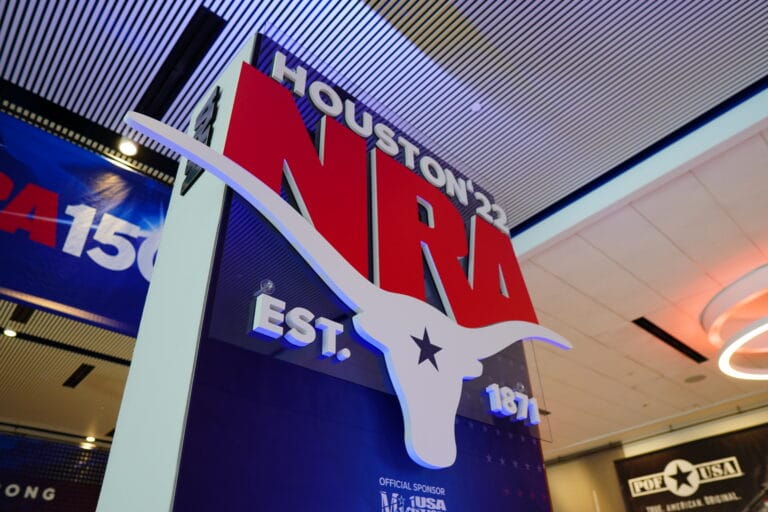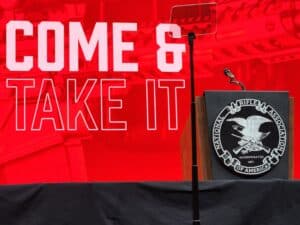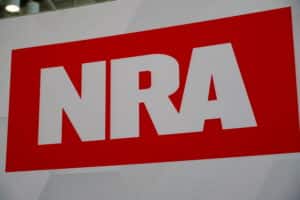A former New York financial regulator did not violate the NRA’s First Amendment rights by pressuring insurers not to work with them, and, if she did, she was protected by qualified immunity.
That’s what a three-judge panel at the Second Circuit Court of Appeals ruled on Thursday. Reversing a lower court’s holding, the panel argued Maria Vullo, the former Superintendent of the New York State Department of Financial Services, did nothing wrong when she wrote a letter to financial institutions urging them to drop relationships with the NRA and other “gun promotion organizations” after the 2018 Parkland school shooting. It said Vullo “acted reasonably and in good faith” using methods that were constitutional.
“[W]e conclude that the NRA has failed to plausibly allege that Vullo ‘crossed the line ‘between attempts to convince and attempts to coerce,'” the court wrote. “Moreover, even assuming that Vullo’s actions and statements were somehow coercive, we conclude further that her conduct here–taking actions and making statements in her various capacities as regulator, enforcement official, policymaker, and representative of New York State–did not violate clearly established law.”
The ruling is another setback for the nation’s largest gun-rights group in its ongoing legal battle with the state of New York, which is also trying to remove NRA leadership over accusations of financial impropriety in the millions of dollars. The ruling comes after a series of legal losses for the NRA, shrinking membership, and financial struggles. But it also has potential implications well beyond the Second Amendment advocacy group, and could lead to more government officials applying their influence over financial institutions against political opponents on issues across the spectrum.
The NRA slammed the decision and said it is considering appealing.
“The Second Circuit’s decision regarding the NRA’s claims against Ms. Vullo misstates the facts, and offends the First Amendment,” William Brewer III, the gun group’s outside counsel, said in a statement. “The NRA is exploring its options, including certiorari to the Supreme Court, which recently reversed yet another Second Circuit decision by a panel in the Bruen case.”
Vullo sent the letter to financial institutions at the request of then-governor Andrew Cuomo (D.) after the state determined the NRA’s gun-carry insurance violated state law and fined the companies providing it millions of dollars. In it, Vullo advised the companies to weigh the reputation risks of working with the NRA and other gun groups. She encouraged them to cut ties as part of responsible corporate governance.
The NRA filed suit and claimed the state was perpetrating a “blacklisting campaign” against the organization over its protected speech. It said Vullo used her role as bank regulator to try and intimidate the companies into not doing business with her political opponents. The NRA received support from an uncommon ally in its fight when the American Civil Liberties Union (ACLU) came out in its defense
“If Cuomo can do this to the NRA, then conservative governors could have their financial regulators threaten banks and financial institutions that do business with any other group whose political views the governor opposes,” the group wrote in a brief supporting the NRA’s suit. “The First Amendment bars state officials from using their regulatory power to penalize groups merely because they promote disapproved ideas.”
The ACLU did not respond to a request for comment on the Second Circuit’s ruling.
The court argued that because Vullo’s letter was polite and did not make any explicit threats of backlash, it was acceptable.
“Although she did have regulatory authority over the target audience, and even assuming some may have perceived the remarks as threatening, the Guidance Letters and Press Release were written in an evenhanded, non-threatening tone and employed words intended to persuade rather than intimidate,” the court wrote. “They did not refer to any pending investigations or possible regulatory action; the only ‘adverse consequences’ alluded to were the ‘risks, including reputational risks . . . if any,’ of continuing to do business with gun promotion groups amid growing public concern over gun violence and the ‘social backlash’ against ‘organizations that promote guns that lead to senseless violence.'”
The Second Circuit panel said Vullo’s efforts to push Llyods of London into dropping the NRA as part of her investigation into the gun-carry insurance program was “a closer call.” But it ultimately concluded that was not unconstitutional either.
“To the extent Vullo offered Lloyd’s leniency in the course of negotiating a resolution of the apparent insurance law violations, context shows that she was merely carrying out her regulatory responsibilities. Even with all reasonable inferences drawn in the NRA’s favor, it is apparent Vullo did not coerce Lloyd’s (or the other entities in question) into severing ties with the NRA; indeed, the consent decrees explicitly provided otherwise.”
The NRA rejected the idea that Vullo was acting in good faith or that her
“The Second Circuit’s Vullo opinion endorses a radical idea: that financial regulators can selectively punish businesses to advance ‘public policy,’ including ‘social issues’ such as gun control,” Brewer said. “This is a derogation of the First Amendment that should not prevail.”
The court was unconvinced that Vullo should face any legal consequences for her actions even if they had violated the NRA’s First Amendment rights. It said the doctrine of qualified immunity would protect her because it was not clearly established that she could not warn the banks against working with gun-rights groups.
“The Complaint’s factual allegations show that, far from acting irresponsibly, Vullo was doing her job in good faith,” the court wrote. “She oversaw an investigation into serious violations of New York insurance law and obtained substantial relief for the residents of New York. She used her office to address policy issues of concern to the public. Even assuming her actions were unlawful, and we do not believe they were, the unlawfulness was not apparent by any means.”
Vullo celebrated the win.
“For four years, the NRA has proceeded with this baseless case while I remained steadfast in my position,” she said in a statement to the Associated Press.
The NRA’s claims against former-governor Cuomo were not covered by the ruling.






